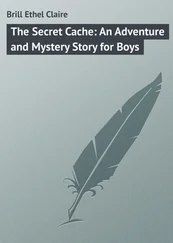Robert Robert - Scouting for Boys
Здесь есть возможность читать онлайн «Robert Robert - Scouting for Boys» весь текст электронной книги совершенно бесплатно (целиком полную версию без сокращений). В некоторых случаях можно слушать аудио, скачать через торрент в формате fb2 и присутствует краткое содержание. Жанр: Старинная литература, und. Описание произведения, (предисловие) а так же отзывы посетителей доступны на портале библиотеки ЛибКат.
- Название:Scouting for Boys
- Автор:
- Жанр:
- Год:неизвестен
- ISBN:нет данных
- Рейтинг книги:3 / 5. Голосов: 1
-
Избранное:Добавить в избранное
- Отзывы:
-
Ваша оценка:
- 60
- 1
- 2
- 3
- 4
- 5
Scouting for Boys: краткое содержание, описание и аннотация
Предлагаем к чтению аннотацию, описание, краткое содержание или предисловие (зависит от того, что написал сам автор книги «Scouting for Boys»). Если вы не нашли необходимую информацию о книге — напишите в комментариях, мы постараемся отыскать её.
Scouting for Boys — читать онлайн бесплатно полную книгу (весь текст) целиком
Ниже представлен текст книги, разбитый по страницам. Система сохранения места последней прочитанной страницы, позволяет с удобством читать онлайн бесплатно книгу «Scouting for Boys», без необходимости каждый раз заново искать на чём Вы остановились. Поставьте закладку, и сможете в любой момент перейти на страницу, на которой закончили чтение.
Интервал:
Закладка:
Camp Equipment
Your next point is to look to the equipment—that is to say, what you will need in the way of cooking gear, buckets, tools and so on. Here is a rough list of things that are useful in a standing camp, but they will not all be necessary in a bivouac or tramping camp:
For Tent—Bucket, lantern and candles, matches, mallet, basin, spade, axe, hank of cord, Patrol flag, and strap for hanging things on the tent pole.
For Kitchen—Saucepan or stewpot, fry-pan, kettle, gridiron, matches, bucket, butcher’s knife, ladle, cleaning rags, bags for potatoes, etc.
For Each Scout—Waterproof sheet, two blankets, cord or strap for tying them up, straw mattress (to be made in camp— twine and straw required), ration bags. It is important that enough sleeping bags or blankets be provided to enable each Scout to make up a separate bed.
Personal Equipment— Each Scout will need:
Complete Scout Uniform, including hat
Pyjamas or change for night
Sweater Mending materials
Rain coat Plates, cup or mug
Spare shoes Knife, fork and spoon
Bathing suit Matches
Towel Haversack or pack
Handkerchiefs Soap, comb, brush, toothbrush, in toilet bag
An old camper always has with him in camp three or four little linen bags for carrying his provisions. Of course, he makes these for himself before going out into camp.
The ration bag need not be bigger than 6 inches deep by 3 inches wide, and should have a tape run through the hem of the neck with which to draw it tight.
While you are about it, it is also useful to make yourself some bigger bags to keep odds and ends
in, in camp—such as string, spare buttons, needle case, scissors, and so on.
I have linen bags, too, for putting my boots into when packing up. It prevents them from dirtying the clothes among which they are packed.
Food
If fresh meat is used, be sure that it is fresh, and remember that eggs, rice, and porridge keep better. Fruit is easy to stew and good to eat. Chocolate is very useful in camp and on the march.
A good kind of bread for camp is what the Boers and most South African hunters use, and that is “rusks”. Rusks are easily made. You buy a stale loaf at the baker’s at half-price, cut it up into thick slices or square junks, and then bake these in an oven or toast them before a hot fire till they are quite hard. They do very well instead of bread. Soft bread easily gets damp and sour and stale in camp.
Making Camp
In Scout camps the tents are not pitched in lines and streets as in military camps, but are dotted about in Patrol units, fifty or a hundred yards apart or more, in a big circle round the Scoutmaster’s tent, which, with the flag and camp fire, is generally in the centre.
Pitching Tents
When you have chosen the spot for your camp, pitch your tent with the door away from the wind.
If heavy rain comes on, dig a small trench about three inches deep all round the tent to prevent it from getting flooded.

You can smile at the rain if you have pitched your tent properly.
This trench should lead the water away downhill. Dig a small hole the size of a teacup alongside the foot of the pole into which to shift it if rain comes on. This enables you to slack up all ropes at once to allow for their shrinking when they get wet.
Water Supply
If there is a spring or stream, the best part of it must be kept strictly clear and clean for drinking water. Farther downstream, a place may be appointed for bathing, washing clothes, and so on.
The greatest care is always taken by Scouts to keep their drinking water supply very clean, otherwise they may get sickness among them.
All water has a large number of germs in it, too small to be seen without the help of a microscope. Some of them are dangerous, some are not. You can’t tell whether the dangerous ones are there, so if you are in doubt about the water, it is safest to kill all the germs by boiling the water. Then let it cool again before drinking it. In boiling the water, don’t let it merely come to a boil, and then take it off, but let it boil fully for a quarter of an hour, as germs are very tough customers, and take a lot of boiling before they get killed.
Kitchens
The cooking fire is made to leeward, or down- wind of the camp, so that the smoke and sparks
from the fire don’t blow into the tents. Cooking fires are described on pages 124-127.
Old Scouts always take special care to keep the kitchen particularly clean, as, if scraps are left lying about, flies collect and are very likely to poison the food, and this may bring sickness to the Scouts.
TOMMY THE TENDERFOOT No. 4 - TOMMY GOES CAMPING

Arriving in camp brimming over with hopes
He finds out that tents are supported by ropes.
Note to Parents
Camping is the great point in Scouting which appeals to the boy, and the opportunity for teaching him self-reliance and resourcefulness, besides giving him health.
Some parents who have never had experience of camp life themselves, look upon camping with misgivings as possibly likely to be too rough and risky for their boys. But when they see their lads return full of health and happiness outwardly, and morally improved in the points of practical manliness and comradeship, they cannot fail to appreciate the good which comes from such an outing.
I sincerely hope, therefore, that no obstacle may be placed in the way of the boys taking their holiday on the lines suggested.
So keep the camp kitchen and the ground around it very clean at all times.
To do this you will want a wet and a dry pit. These are holes about eighteen inches square and at least two feet deep. The top of the wet one is covered with a layer of straw or grass, and all greasy water is poured through this into the pit. The covering collects the grease in the water and prevents it from clogging up the ground. The straw or grass should be burnt every day and renewed.
Into the dry pit is put everything else that will not burn. Tin cans should be burnt first and then hammered out flat before being put in the dry pit. Burn everything you can or your pit will very soon be full. The rubbish should be covered with a layer of earth every evening.
Latrines
Another very important point for the health of the Scouts is to dig a trench to serve as a latrine. On reaching the camping ground the latrine is the very first thing to attend to—and all Scouts bear this in mind.
Before pitching tents or lighting the fire the latrine is dug and screens erected around it. The trench should be two feet deep, three feet long, and one foot wide, so that the user can squat astride of it, one foot on each side. A thick sprinkling of earth should be thrown in after use, and the whole trench carefully filled in with earth after a few days’ use.
There should also be a wet latrine made by digging a hole and half-filling it with stones for drainage.
Even in a one-night camp, Scouts should dig a latrine trench. And when rearing away from camp a Scout will always dig a small pit a few inches deep, which he will fill in again after use. Neglect of this not only makes a place unhealthy, but also makes farmers and landowners disinclined to give the use of their ground for Scouts to camp on. So don’t forget it, Scouts!
Читать дальшеИнтервал:
Закладка:
Похожие книги на «Scouting for Boys»
Представляем Вашему вниманию похожие книги на «Scouting for Boys» списком для выбора. Мы отобрали схожую по названию и смыслу литературу в надежде предоставить читателям больше вариантов отыскать новые, интересные, ещё непрочитанные произведения.
Обсуждение, отзывы о книге «Scouting for Boys» и просто собственные мнения читателей. Оставьте ваши комментарии, напишите, что Вы думаете о произведении, его смысле или главных героях. Укажите что конкретно понравилось, а что нет, и почему Вы так считаете.

![Роберт Баден-Пауэлл - Искусство скаута-разведчика[Scouting for boys ; Искусство Разведки для мальчиков]](/books/70572/robert-baden-pauell-iskusstvo-skauta-thumb.webp)









